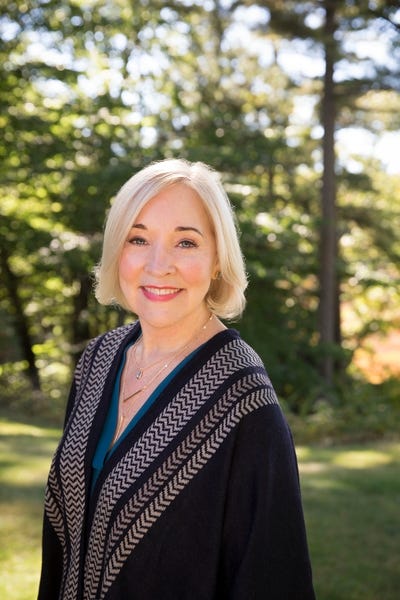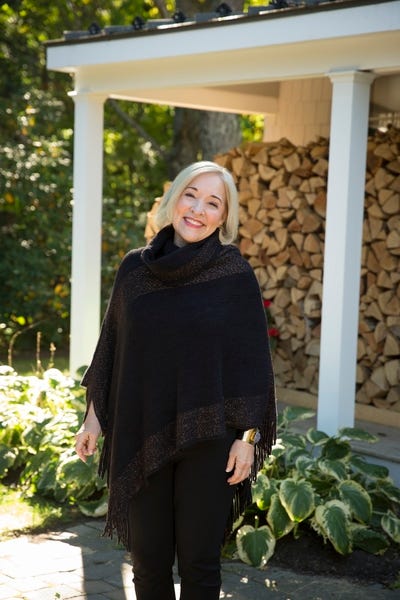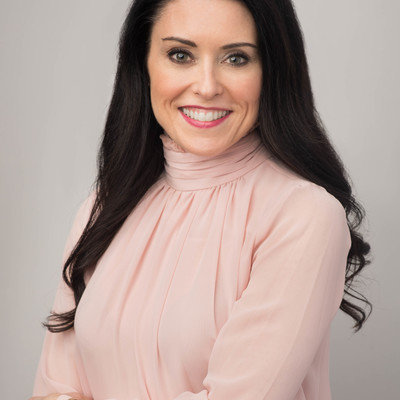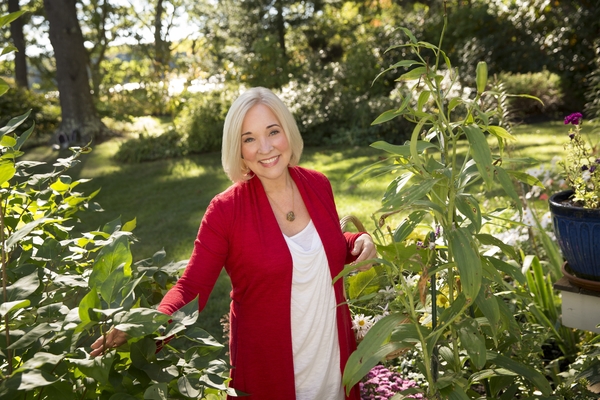Then, at two in the afternoon, I got a call from Ned Leavitt, a literary agent at the time with William Morris. He says to me, “I think it’s time you wrote a book.” Honest to God, that’s how that happened. It wasn’t like, “Today, I want to write a book, I want to be rich and famous.” None of that. No. It was more like my soul said, honey, your number is up and you’re the person who has to do this.
As part of my series about “How to write a book that sparks a movement” I had the great pleasure of sitting down and interviewing one of my heroes, Dr. Christiane Northrup.
Dr. Christiane Northrup is a visionary pioneer and a leading authority in the field of women’s health and wellness, which includes the unity of mind, body, emotions, and spirit. Internationally known for her empowering approach to women’s health and wellness, Dr. Northrup teaches women how to thrive at every stage of life.
A board-certified OB/GYN physician, Dr. Northrup graduated from Dartmouth Medical School and completed her residency at Tufts New England Medical Center in Boston. She was also an assistant clinical professor of OB/GYN at Maine Medical Center for 20 years.
Thank you so much for joining us! Can you share your “backstory”?
I never even imagined myself being a doctor. My aunt and uncle were doctors. I thought their lives sucked. They had a terrible lifestyle. My dad was a dentist. I never intended to even go to medical school, but at the time it seemed like a better degree than a PhD in biology or to teach biology. I wanted to be a biology teacher. But then I went to med school and I thought, “well, I’ll never practice.”
And then I saw a baby born and I nearly fell to the floor in joy-filled pain, pain-filled joy, where you’re just moved to tears. And that it felt like as normal as breathing. And that’s really why I went into OBGYN.

What was the moment or series of events that made you decide to bring your message to the greater world?
When I was co-president of the American Holistic Medical Association and on the board, women’s health was all about orgasms or Kundalini. But I was seeing an awful lot of abnormal pap smears and vaginal warts. Women were telling me their stories and I knew that what was happening to their bodies was a direct result of their experience in this culture. My colleagues thought that any woman with chronic pelvic pain was just crazy. But I was seeing that they were victims of sexual abuse that they’d never dared speak about. I was seeing everything that the “Me Too” movement named, but 30 years before.
So that’s the reason that I wrote the book. I wrote a little article in the 80’s for Woman of Power magazine, which is out of Cambridge, Massachusetts, a feminist magazine. It was called “Honoring Our Bodies.” The thesis was when you have a culture in which 80% of women suffer from PMS and menstrual cramps, one in three has a hysterectomy. When everyone thinks it’s fine to get their ovaries out, when 25% of births are by cesarean, this is not the way the creator designed our bodies. Our bodies are not lemons. This can only happen in the context of a culture that degrades that which is feminine in men and women. What do men hear? “Don’t be a pussy,” right? Like that’s the worst thing that you can be.
One day, I was reading Florence Scovel Shinn’s book,The Game of Life and How to Play Itand there was a little affirmation you did and to tell the universe what you want. So I sat there, 11 o’clock on a Friday and I said, “Infinite wisdom. Give me a sign, tell me the next best use of my gifts and talents.”
Then, at two in the afternoon, I got a call from Ned Leavitt, a literary agent at the time with William Morris. He says to me, “I think it’s time you wrote a book.” Honest to God, that’s how that happened. It wasn’t like, “Today, I want to write a book, I want to be rich and famous.” None of that. No. It was more like my soul said, honey, your number is up and you’re the person who has to do this.
Did you think it was going to have the impact and become this global sensation and a movement?
No, I was just hoping to keep my medical license. I remember going to the Bertelsmann Building in the middle of Times Square and the head of publicity says to me, “Well, you know, how are we going to sell this book?” I said to her, “The angels will sell this book.” I sort of had this belief. Even my literary agent didn’t believe in it.
And I remember her calling me out of the blue when the book had been out and she said to me, “I have a check for you.” She was shocked that the book sold, that anyone bought the book. Women from everywhere had begun to write me letters. It was before email. It was before the Internet. They’d write me letters and they would say, “We always knew what you were saying. We knew this. We just never heard an MD say it.”
So, I realized my work has always been a bridge between what women intuitively know in their bones because they read the book and they go, “Yes, this feels right. Yes. I’m so glad to finally see someone who’s got those high-quality credentials, Dartmouth medical school, Tufts New England Medical Center, thank you for saying what I already knew.” Then what that does is it emboldens them to trust themselves and that is the revolution.

Do you have a favorite story of a reader writing to you, or someone you met at a speaking engagement?
A woman came up to me at an airport once and said, “Oh my God, thank you. Thank you, thank you. Because of you, I kept my uterus. I didn’t have a hysterectomy.”
Another woman said to me, “I had a home birth. You inspired me. I had the most beautiful births at home.”
My favorite though now is the women who got the book, like for high school graduation because they had a cool mom and who are now entering menopause. We know that the number one reason why a woman breastfeeds or will continue has been the presence of a grandmother who approves. That’s all. You just need a grandmother who approves. So the fact that I’m now kind of a grandmother to the women who first read the book means that we have now a couple of generations and that’s what it takes to change things. That’s what it takes, you know, to have women go in to the doctor.
For me, what it is, is living long enough and still being here to see that the things that me and my patients intuitively knew now has the science to show it.
What impact did you hope to make when you wrote this book?
Most of medicine makes the body an object to be observed from outside yourself instead of the truth, which is every thought we think, every belief we have, every emotion we have affects your physiology. And that is so well documented at this point. And yet it’s still not accepted.
I want women armed with this knowledge. I just went through a knee replacement and a cervical spine thing and I’m really good at being in the hospital because I love the nurses, but I also know how to say, “No thank you to things. No, no.”
The world, of course, needs progress in many areas. What movement do you hope someone starts next?
I want women to wake up to their fertility cycles and how that’s connected with the moon. Wake up to the impact of psych meds, birth control pills, statins, anything that makes a woman more “compliant.”
I want to wake women up to their true power and get them to understand how much power they have regardless of the statistics. I mean, you and I can say, “oh, women still aren’t at the top of the game and businesses” and they’re not. But in the way those are set up who would want to be? I wouldn’t want to be.
There’s a new generation of women doing it on their own terms. I would like to see more women take back their power. It’s kind of a return of what happened in the 60’s and the 70’s when everyone was saying “howdy” to their cervix for the first time. We need more of that kind of activism but with pleasure, with more fun, with having more fun with other women. We were taught to be suspect of other women. Now we realize no! We have to be each other’s wing women and then we can accomplish miracles.
Thank you so much! It was such an honor to interview you!


